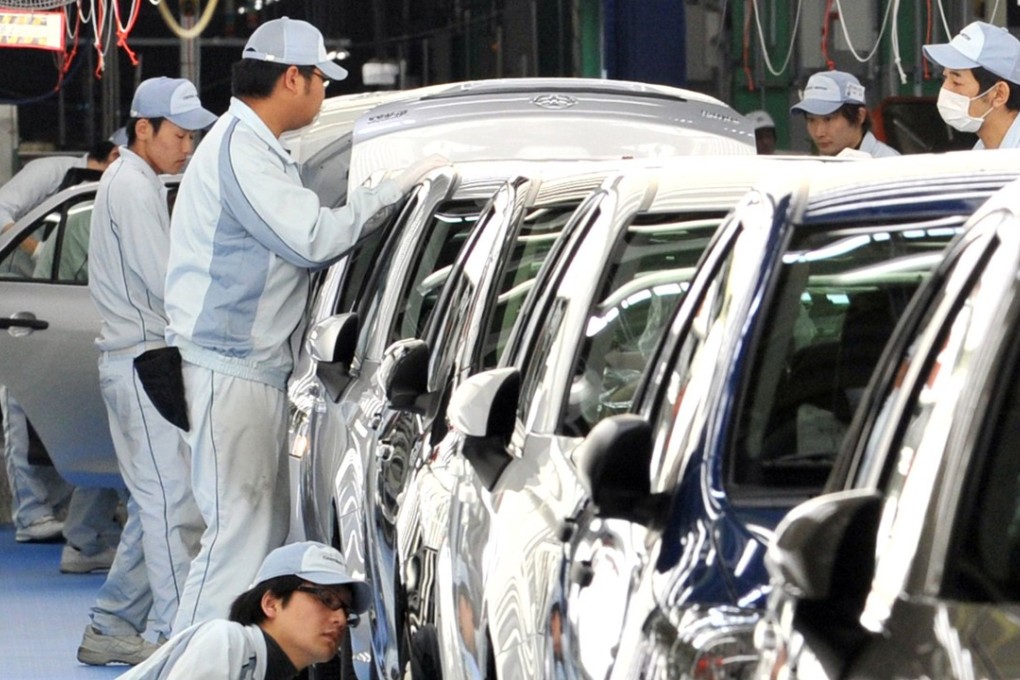Opinion | Trump’s trade war undermines Japan’s attempt to kick stalling wages and economy into higher gear

Tokyo’s 20-year quest for inflation had a rough July. Consumer prices stood at 0.8 per cent year-on-year, unchanged from June and a long way off from the Bank of Japan’s 2 per cent target.
To understand what’s going wrong, economists are scrutinising data on money supply, bank credit dynamics and zigs and zags in business surveys. Yet all the insights Japanologists need can be found at Toyota Motor headquarters.
Earlier this month, Japan Inc.’s premier name posted better-than-expected quarterly profits - up 7.2 per cent between April and June. That, on top of the tens of billions of dollars Toyota made in recent years from Prime Minister Shinzo Abe’s reflation programme. Make that the rest of Japan Inc., which has been gorging on BOJ liquidity and riding a weaker yen to record profits.
Workers have yet to feel the magic. When Toyota does open its wallet, it’s hardly worth labour’s while. In April, it announced a monthly base pay increase of 1,300 yen (US$11.60/HK$92). Herein lies why Japan is coming up short in its deflation fight - and why things might get worse.
This was supposed to be the year when Abenomics finally gained noticeable traction. Then came Donald Trump’s trade war, one escalating right before the eyes of an increasingly worried Tokyo establishment.
First came Trump’s tariffs of 25 per cent on steel and 10 per cent on aluminium. Then came levies on US$50 billion of Chinese goods on the way to as much as US$500 billion. The White House wants to devalue the US dollar and is threatening 25 per cent taxes on car imports.

